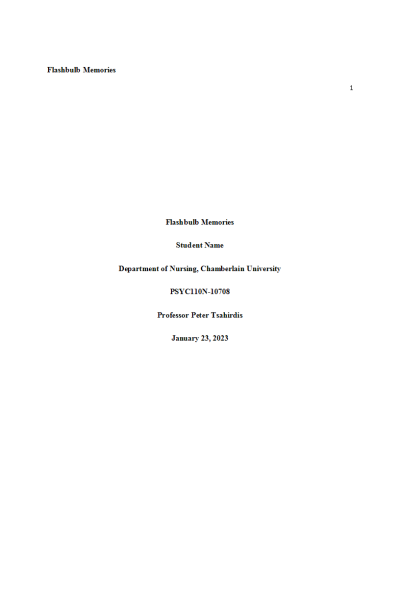PSYC 110N Week 3 Assignment; Flashbulb Memories
-
$20.00
| Institution | Chamberlain |
| Contributor | Fuentes Linar |
Content Preview
Flashbulb memories refer to vivid, detailed, and long-lasting memories of emotionally significant events such as the 9/11 terrorist attacks, the death of Princess Diana, or the assassination of John F. Kennedy. These memories are believed to be encoded differently from other types of memories, and are thought to be more accurate, durable, and emotionally charged.
The phenomenon of flashbulb memories was first studied by Brown and Kulik in 1977, who proposed that these memories were formed in a unique way. They argued that the emotional significance of the event, the surprise and the immediacy of the event all contributed to the formation of flashbulb memories. Later, other researchers such as Neisser and Harsch proposed that the self-relevance of the event, the amount of information and the personal importance of the event are also factors that contribute to the formation of flashbulb memories.
Flashbulb memories are characterized by a high level of detail, a high level of confidence in the accuracy of the memory, and a high level of emotional intensity. However, research has also shown that flashbulb memories are not always accurate and that the details of the memory can change over time (Feldman, 2018). Some researchers argue that flashbulb memories are more likely to be influenced by post-event information, and that the memories can be affected by the individual's expectations and beliefs (Roediger, Dewitt, & Bergman, 2001; Neisser & Harsch,1992)……..Continue
| Instituition / Term | |
| Term | Uploaded 2023 |
| Institution | Chamberlain |
| Contributor | Fuentes Linar |










